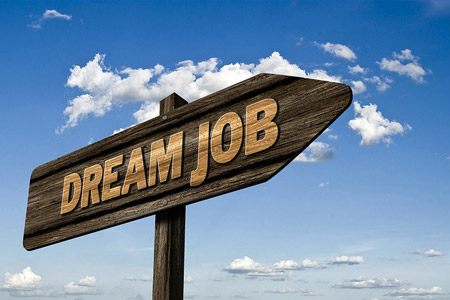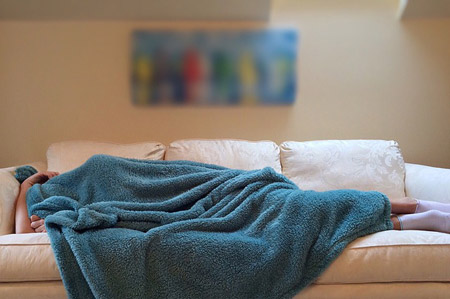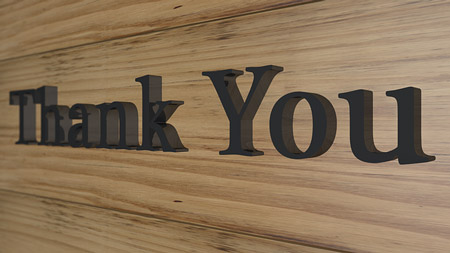NPK
Before jumping to the preparation you need to do before, during and after a job interview let me provide you with some insight into the purpose of an interview. The purpose of a job interview is to inquire into the candidate's personal and professional qualifications and abilities (soft skills and hard skills), depending upon the type of job. The questions asked in the interview are based on the candidate's background knowledge, opinions, values, and behaviour, besides his or her qualifications, goals, experience and family. The candidate is evaluated according to his or her interpersonal and communicative skill, confidence, the presence of mind, and potential for a career in the company, besides attitudes such as loyalty, commitment, and trustworthiness.
The interview can be of four types: informal or conversational, guided to some general topics, open-ended and standardized, fixed-response and closed type.The open-ended type is frequently adopted for job interviews.
The informal, conversational interview
In this type of interview, the questions to be asked are not fixed or predetermined. The interviewer "goes with the flow", remaining as open and adaptable as possible to the interviewee's priorities during the interview. This type of interview is relatively uncommon in job interviews within an organization, especially, e.g., for placement after short training courses.
The general interview, guided approach
In this type of interview, information is collected from each interviewee that pertains to the same general areas. This is called the guided approach. The guided approach provides more focus than the conversational approach, but still allows a degree of freedom and adaptability in getting information from the interviewee.
The standardized, open-ended interview
Here all interviewees are asked the same open-ended questions. An open-ended question is one that requires something more than a yes/no ore true/false answer. The answers have to be thought out by the candidate. This approach facilitates faster interviews that can be more easily analyzed and compared.
The closed, fixed-response interview
Here, all interviewees are asked the same questions and asked to choose answers from among the same set of alternatives.
The best possible preparation for a job interview is to expect the unexpected. And the best way to deal with an interview is to be yourself. The given below are merely some general guidelines.
We can think of preparing for an interview in the following ways.
1 Intellectual Preparation
The first tip you need to follow when preparing for a job interview is brushing up your knowledge. That is,
➤ your knowledge of the subject,
➤ your educational background,
➤ your own opinions,
➤ the reasons behind your decisions in life,
➤ your presence of mind,
➤ know the exact location and time of the interview,
2 Preparing for Effective Verbal Communication
Good communicative abilities are very important to face any kind of job interview. The ability to communicate effectively comes from organized and positive thinking, confidence and self-esteem. These, in turn, come from being well-informed and well-read. For this you need to:
➤ watch radio and television programmes of general interest,
➤ read a variety of good newspapers and magazines,
➤ think about what you have read and heard, and
➤ discuss these matters with your friends to improve your fluency in speaking.
3 Physical Preparation
Very often we are unable to decide, what we should wear for a given occasion. For a job interview, which is usually a formal situation, you need to know about formal and informal dress codes and decide what not to wear for the interview. Apart from dress and accessories, you need to:
➤ monitor your posture: the way you sit, stand and position your body while talking and listening.
➤ monitor your gestures: the way you use your hands along with your conversation.
➤ monitor your facial expression: your eyebrows, lips and above all your eyes. Your eyes should 'speak' and show the same feelings that you are communicating through your words. You can help yourself by taking suggestions from friends and family.
4 Gather Information about the Organization
When you are preparing for a job interview gather as much information as possible about the organization. For this think about the question: "Why do you want to join our company?" In order to answer this frequently asked question, you have to be familiar with the company's history, products, location(s) and plans for growth. This may not be very difficult for you if the company is big and famous. You can also ask company's brochures or job description to be sent to you.
Prepare your own list of four or five questions about the organization or the position you are applying for, that you do not find answers for in their literature. These questions, if you ask them at the interview, can help your interviewer to evaluate your professional and personal needs.
5 Know what is Expected of you
Review the job advertisement for what's important for the position: situation, responsibilities, requirements, practical problems and their solutions.Write down your strengths and weakness, then check your CV for possible gaps. Prepare a one to two-minute explanation of each important aspect covered in your CV.
6 Organize your Thoughts
When you are preparing for a job interview assimilate your overall thinking and write down points and discuss them with a friend.
7 Rehearse and Practice
This tip is important because practice makes you perfect. Sometimes you are required to give a presentation at your interview. After you have decided on the points to present, focus on how to start and how to end your presentation. Practice it thoroughly in front of not just a mirror, but your family or friends; because they can give you feedback to improve. Practice using any equipment, handouts or visual tools that you need, so that you are comfortable using them in front of a group. For example, if you are carrying photographs to show, arrange them in the order you want, in a separate folder, and practice handling them out without dropping them.
Speake clearly. Make sure your voice reaches the person you speak to. Practice for this by changing the distance between yourself and a person you speak to: speak across a table, across a room, etc. Listen to yourself to see if you sound unfriendly or aggressive.
8 Guard your Health
A good night's sleep is also very helpful for your job interview. This will make you refreshed, alert and cheerful when meeting your interviewers. Prepare yourself with the stamina you need to have to endure a day or two of extended interviewing. Carry any usual medicines and some pain reliever in your briefcase or purse, just in case.
9 Dress Appropriately
Dress professionally in order to be taken seriously. Your appearance should be neither careless nor overdone. Shirts rather than T-shirts, and trousers (or skirts) rather than jeans, if you dress in the western style; you may decide to wear a tie or not, depending on the organization. Use whatever information you have about the organization to find out their "dress code", stated or unstated, to help you dress appropriately.
You are safest in subdued colours, styles, and patterns of clothing. Don't let your clothes distract attention. Wear clothing that you are comfortable in. You will be more confident if you do not have to think about your clothes. Never try out a new item of clothing(particularly new shoes!) that you have not worn earlier.
Do not wear gaudy jewellery, or heavy perfume or cologne. Try to carry just one bag or briefcase which has a space in it for your wallet and important papers
The interview is an opportunity for you to communicate your abilities. It is also a way of evaluating the job that you are seeking. For the employer, it is an opportunity to delineate the line of work you have applied for and to evaluate your abilities in light of it.
"Half the interview is over when you enter the room"
So you have to enter the room with confidence. As soon as you enter the room, instead of looking down, up or sideways, look at the interviewers and greet them politely and appropriately as you would greet them outside the interview situation ("Good morning/good afternoon"). You may wait to be asked to sit, or if there is clearly a chair meant for the candidate, you go towards it and sit down. Smile at them as you take your seat.
1 Answering Questions
The first thing you need to follow while facing the interviewers during the interview is to be yourself. You should not try to pretend to be anything or anyone but yourself! It is important that your interviewers know who they are getting in their company and that you know that you will work well together. While answering the questions, be honest. Don't be too cautious about expressing your own views. Getting influenced by others' opinions and saying what you think the other person wants to hear, doesn't help in the long run, and may make you appear lacking in integrity.
The next thing you need to do is to phrase your answers positively. If you are asked about an unpleasant previous job, or your weakest characteristic, again be honest and leave your interviewers with a positive impression of your attitude.
2 Asking Questions
Some interviewers might even encourage you to ask questions. This means that you should have thought in advance about what questions to ask. Asking questions suggests that you have an active interest in finding out how you will fit into the organization. You may ask questions that deal with
➤ job responsibilities
➤ job expectations
➤ the company's management and set-up
It is not advisable to ask questions about salary and benefits until later in the job interview, or until you are actually offered the job. Most interviewers will give you such information before you leave.
3 Expressing Gratitude
A very important thing you must remember at the end of the interview is to thank your interviewer(s). If the interview panel is too large for this, include everyone with a look or a smile. (Your words and expression could be similar to when taking leave of a host after a formal dinner.) You might say a couple of words about why you are still interested in the job. You may ask when and how you will be informed about the results of the selection.
4 After an Interview
What do you do after the job interview is over? Do you feel relieved, ready to go home and go off to bed? Or di you want to discuss it with someone? Usually, your own reaction can tell you how well you have done in the interview.
A very important thing you should remember to do after you leave the room is to recollect whether you have given your prospective employer(s) all the necessary information needed to get back to you. In case you have forgotten, leave your contact numbers with the receptionist or any other person who had guided you through to the interview in the beginning. Collect any extra information available in the form of brochures etc. at the office about the company. You may spend a few more minutes there before you leave the place.
After you are relaxed and have overcome the tension of the interview, it is time to reflect upon it. Think about the questions you were asked. Give yourself points for your answers. Reflect on your promptness and correctness in answering a question. Think of the areas where you need to gather more knowledge and improve yourself. You can always discuss your interview with a friend or family.
You may get impatient waiting for a communication from your interviewer(s) about acceptance or rejection. If you keep yourself busy, you will be better equipped to control your anxiety. After about a week, you may call to find out about the results, but by then your disquiet will have become less!
HOW TO PREPARE FOR A JOB INTERVIEW
Do you have a job interview? Do you know what preparation you need to do before an interview? Do you know how to conduct yourself during an interview? Do you know what you need to do after the interview is over? The Given below are some tips that you can follow when preparing for an interview.Before jumping to the preparation you need to do before, during and after a job interview let me provide you with some insight into the purpose of an interview. The purpose of a job interview is to inquire into the candidate's personal and professional qualifications and abilities (soft skills and hard skills), depending upon the type of job. The questions asked in the interview are based on the candidate's background knowledge, opinions, values, and behaviour, besides his or her qualifications, goals, experience and family. The candidate is evaluated according to his or her interpersonal and communicative skill, confidence, the presence of mind, and potential for a career in the company, besides attitudes such as loyalty, commitment, and trustworthiness.
The interview can be of four types: informal or conversational, guided to some general topics, open-ended and standardized, fixed-response and closed type.The open-ended type is frequently adopted for job interviews.
The informal, conversational interview
In this type of interview, the questions to be asked are not fixed or predetermined. The interviewer "goes with the flow", remaining as open and adaptable as possible to the interviewee's priorities during the interview. This type of interview is relatively uncommon in job interviews within an organization, especially, e.g., for placement after short training courses.
The general interview, guided approach
In this type of interview, information is collected from each interviewee that pertains to the same general areas. This is called the guided approach. The guided approach provides more focus than the conversational approach, but still allows a degree of freedom and adaptability in getting information from the interviewee.
The standardized, open-ended interview
Here all interviewees are asked the same open-ended questions. An open-ended question is one that requires something more than a yes/no ore true/false answer. The answers have to be thought out by the candidate. This approach facilitates faster interviews that can be more easily analyzed and compared.
The closed, fixed-response interview
Here, all interviewees are asked the same questions and asked to choose answers from among the same set of alternatives.
HOW TO PREPARE BEFORE A JOB INTERVIEW
The best possible preparation for a job interview is to expect the unexpected. And the best way to deal with an interview is to be yourself. The given below are merely some general guidelines.
We can think of preparing for an interview in the following ways.
1 Intellectual Preparation
The first tip you need to follow when preparing for a job interview is brushing up your knowledge. That is,
➤ your knowledge of the subject,
➤ your educational background,
➤ your own opinions,
➤ the reasons behind your decisions in life,
➤ your presence of mind,
➤ know the exact location and time of the interview,
2 Preparing for Effective Verbal Communication
Good communicative abilities are very important to face any kind of job interview. The ability to communicate effectively comes from organized and positive thinking, confidence and self-esteem. These, in turn, come from being well-informed and well-read. For this you need to:
➤ watch radio and television programmes of general interest,
➤ read a variety of good newspapers and magazines,
➤ think about what you have read and heard, and
➤ discuss these matters with your friends to improve your fluency in speaking.
3 Physical Preparation
Very often we are unable to decide, what we should wear for a given occasion. For a job interview, which is usually a formal situation, you need to know about formal and informal dress codes and decide what not to wear for the interview. Apart from dress and accessories, you need to:
➤ monitor your posture: the way you sit, stand and position your body while talking and listening.
➤ monitor your gestures: the way you use your hands along with your conversation.
➤ monitor your facial expression: your eyebrows, lips and above all your eyes. Your eyes should 'speak' and show the same feelings that you are communicating through your words. You can help yourself by taking suggestions from friends and family.
4 Gather Information about the Organization
When you are preparing for a job interview gather as much information as possible about the organization. For this think about the question: "Why do you want to join our company?" In order to answer this frequently asked question, you have to be familiar with the company's history, products, location(s) and plans for growth. This may not be very difficult for you if the company is big and famous. You can also ask company's brochures or job description to be sent to you.
Prepare your own list of four or five questions about the organization or the position you are applying for, that you do not find answers for in their literature. These questions, if you ask them at the interview, can help your interviewer to evaluate your professional and personal needs.
5 Know what is Expected of you
Review the job advertisement for what's important for the position: situation, responsibilities, requirements, practical problems and their solutions.Write down your strengths and weakness, then check your CV for possible gaps. Prepare a one to two-minute explanation of each important aspect covered in your CV.
6 Organize your Thoughts
When you are preparing for a job interview assimilate your overall thinking and write down points and discuss them with a friend.
7 Rehearse and Practice
This tip is important because practice makes you perfect. Sometimes you are required to give a presentation at your interview. After you have decided on the points to present, focus on how to start and how to end your presentation. Practice it thoroughly in front of not just a mirror, but your family or friends; because they can give you feedback to improve. Practice using any equipment, handouts or visual tools that you need, so that you are comfortable using them in front of a group. For example, if you are carrying photographs to show, arrange them in the order you want, in a separate folder, and practice handling them out without dropping them.
Speake clearly. Make sure your voice reaches the person you speak to. Practice for this by changing the distance between yourself and a person you speak to: speak across a table, across a room, etc. Listen to yourself to see if you sound unfriendly or aggressive.
8 Guard your Health
A good night's sleep is also very helpful for your job interview. This will make you refreshed, alert and cheerful when meeting your interviewers. Prepare yourself with the stamina you need to have to endure a day or two of extended interviewing. Carry any usual medicines and some pain reliever in your briefcase or purse, just in case.
9 Dress Appropriately
Dress professionally in order to be taken seriously. Your appearance should be neither careless nor overdone. Shirts rather than T-shirts, and trousers (or skirts) rather than jeans, if you dress in the western style; you may decide to wear a tie or not, depending on the organization. Use whatever information you have about the organization to find out their "dress code", stated or unstated, to help you dress appropriately.
You are safest in subdued colours, styles, and patterns of clothing. Don't let your clothes distract attention. Wear clothing that you are comfortable in. You will be more confident if you do not have to think about your clothes. Never try out a new item of clothing(particularly new shoes!) that you have not worn earlier.
Do not wear gaudy jewellery, or heavy perfume or cologne. Try to carry just one bag or briefcase which has a space in it for your wallet and important papers
DURING A JOB INTERVIEW AND AFTER IT
"Half the interview is over when you enter the room"
So you have to enter the room with confidence. As soon as you enter the room, instead of looking down, up or sideways, look at the interviewers and greet them politely and appropriately as you would greet them outside the interview situation ("Good morning/good afternoon"). You may wait to be asked to sit, or if there is clearly a chair meant for the candidate, you go towards it and sit down. Smile at them as you take your seat.
1 Answering Questions
The first thing you need to follow while facing the interviewers during the interview is to be yourself. You should not try to pretend to be anything or anyone but yourself! It is important that your interviewers know who they are getting in their company and that you know that you will work well together. While answering the questions, be honest. Don't be too cautious about expressing your own views. Getting influenced by others' opinions and saying what you think the other person wants to hear, doesn't help in the long run, and may make you appear lacking in integrity.
The next thing you need to do is to phrase your answers positively. If you are asked about an unpleasant previous job, or your weakest characteristic, again be honest and leave your interviewers with a positive impression of your attitude.
2 Asking Questions
Some interviewers might even encourage you to ask questions. This means that you should have thought in advance about what questions to ask. Asking questions suggests that you have an active interest in finding out how you will fit into the organization. You may ask questions that deal with
➤ job responsibilities
➤ job expectations
➤ the company's management and set-up
It is not advisable to ask questions about salary and benefits until later in the job interview, or until you are actually offered the job. Most interviewers will give you such information before you leave.
3 Expressing Gratitude
A very important thing you must remember at the end of the interview is to thank your interviewer(s). If the interview panel is too large for this, include everyone with a look or a smile. (Your words and expression could be similar to when taking leave of a host after a formal dinner.) You might say a couple of words about why you are still interested in the job. You may ask when and how you will be informed about the results of the selection.
4 After an Interview
What do you do after the job interview is over? Do you feel relieved, ready to go home and go off to bed? Or di you want to discuss it with someone? Usually, your own reaction can tell you how well you have done in the interview.
A very important thing you should remember to do after you leave the room is to recollect whether you have given your prospective employer(s) all the necessary information needed to get back to you. In case you have forgotten, leave your contact numbers with the receptionist or any other person who had guided you through to the interview in the beginning. Collect any extra information available in the form of brochures etc. at the office about the company. You may spend a few more minutes there before you leave the place.
After you are relaxed and have overcome the tension of the interview, it is time to reflect upon it. Think about the questions you were asked. Give yourself points for your answers. Reflect on your promptness and correctness in answering a question. Think of the areas where you need to gather more knowledge and improve yourself. You can always discuss your interview with a friend or family.
You may get impatient waiting for a communication from your interviewer(s) about acceptance or rejection. If you keep yourself busy, you will be better equipped to control your anxiety. After about a week, you may call to find out about the results, but by then your disquiet will have become less!








ConversionConversion EmoticonEmoticon